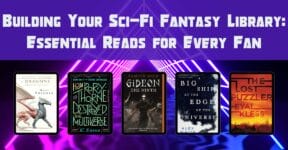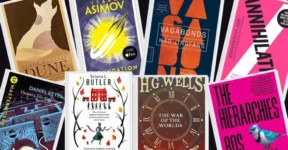Whether you write fiction, non-fiction, or something in between, the core purpose is often the same: to tell stories, share information, ask questions, raise important issues, and transform ideas—whether imaginative or analytical—into compelling reading material. And to ensure your work is easily understood and enjoyable, a mindful approach to the writing process is essential. Even when crafting pure fiction set in fantastical galactic empires, adhering to established writing practices is crucial. While it may be largely imaginary, the process of writing the perfect science fiction fantasy book is decidedly real.

Time for Some Definitions
This brings us to two interconnected aspects of writing: craft and process. Craft refers to the artistic skill of assembling words to tell a compelling story or convey a message effectively. Regardless of genre or objective, elements of craft underpin all writing, from brief notes to epic thousand-page novels.
Process, on the other hand, encompasses the technical aspects—the procedures or workflow involved in writing. This includes outlining, drafting, editing, and refining layout. In fiction, the process may also involve developing plot points, characters, timelines, and more. A well-defined process ensures a polished final product with minimal errors.
While some believe that published books, especially fiction, remain unchanged, this is a misconception. J.R.R. Tolkien’s The Lord of the Rings exemplifies post-publication revisions, demonstrating that textual changes are a normal part of the writing journey.
Craft is flexible; each writer has their own style, storytelling approach, and preferred level of conciseness. Process, however, is more rigid. The workflow—outline, draft, edit, develop—generally follows a set order. These two aspects are not contradictory but complementary; mastering both is key to successful writing.
Writing as a Craft
As defined in the Massachusetts 2017 English Language Arts and Literacy Framework, “craft” in writing refers to the artistic skill used to construct a compelling narrative. Like any artistic skill, mastering the craft of writing takes time, practice, and persistence. It is, however, a teachable skill for those willing to learn.
Consider the analogy of carpentry. Aspiring carpenters often apprentice with experienced professionals to learn the craft. Alternatively, they might set up a workshop and learn through trial and error, likely producing subpar furniture, injuring themselves, and enduring a longer learning curve.
Writing, similarly, is a craft. However, finding an author willing to take on an apprentice is rare. Aspiring writers can’t simply shadow established authors like N.K. Jemisin or Stephen King. Formal education, such as university programs focused on storytelling, offers the closest equivalent to a writing apprenticeship. For those lacking access to such programs, local writing groups or online communities provide opportunities for practice and constructive feedback.
Writing is a remarkable craft, blending technical skills with artistic expression. It’s akin to painting a picture or sculpting a figure with words, using language that resonates with the intended audience. At its core, writing translates thoughts, ideas, imaginations, and emotions into relatable stories. While some stories require a factual approach, even fantastical tales of galactic empires and mystical worlds can convey powerful messages.
What writing style are you interested in learning? Do you believe formal training is essential for professional writing? We’d love to hear your perspectives.
Other Things You Might Want to Know
What elements of science fiction fantasy can you use to hone the craft of writing?
Several elements can be used for practice:
- Plot
- Setting
- Characters
- Point of View
- Conflict
- Symbols
You don’t need to write a complete story to practice. Focus on one element at a time, gradually incorporating others as you become more comfortable.
Recommended books on writing fiction by popular authors:
- On Writing: A Memoir of the Craft by Stephen King
- Bird by Bird: Some Instructions on Writing and Life by Anne Lamott
- The Elements of Style by William Strunk Jr. and E.B. White
- Story: Substance, Structure, Style, and the Principles of Screenwriting by Robert McKee
- Steering the Craft: A Twenty-First-Century Guide to Sailing the Sea of Story by Ursula K. Le Guin
- Writing the Breakout Novel by Donald Maass
- This Year You Write Your Novel by Walter Mosley
Why do people say you have to read in order to write?
Reading provides exposure to diverse writing techniques, styles, and narrative structures. By reading widely, you passively absorb the mechanics of storytelling. Reading also expands your vocabulary naturally, introducing you to new words and expressions while developing a sense of rhythm and sentence structure through effective word choice.







